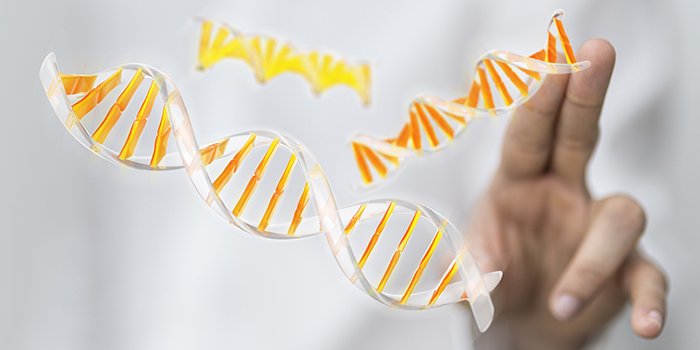It turns out that most people who are exposed to asbestos and go on to develop mesothelioma have a mutated gene.
Scientists think that the exposure to asbestos causes the gene to mutate. The mutated gene then helps mesothelioma get started.
But a recent study by the Mayo Clinic in Rochester, Minnesota, and Acibadem University in Adana, Turkey, has found that more than one type of your genes can mutate after exposure to asbestos.
That’s a very important insight. Knowing exactly which types of genes are mutated allows doctors to do a better job of targeting your mesothelioma with the right therapeutics.
Receiving the right therapeutics can increase your mesothelioma survival.
Genes Mutate in Most Mesothelioma Patients
The Mayo-Acibadem study was published in a recent issue of the journal Anticancer Research. The authors reported that gene mutations linked to mesothelioma were found in 73 percent of the patients whose histories they reviewed.
Specifically, gene mutations were found in 86 percent of patients with malignant pleural mesothelioma and in 50 percent of patients with malignant peritoneal mesothelioma.
The researchers made that discovery by using a tool called next-generation DNA sequencing. This tool makes it possible to accurately identify defective genes in your body.
Scientists have identified 236 genes that can trigger cancers of various kinds when those genes mutate. Next-generation DNA sequencing can recognize all 236 of them.
For this study, the researchers gathered the medical records of 11 patients who had next-generation DNA sequencing done when they first arrived for diagnosis at Mayo.
Half the patients were older than 65, half were younger. The youngest patient was just 27. The oldest was 73. Four of the 11 were women.
The majority — 64 percent — had pleural mesothelioma. The remainder had peritoneal mesothelioma. Nine had the epithelioid subtype of mesothelioma. No one had the sarcomatoid subtype.
Eight patients had at least one mutated gene. One patient had five — the most of anybody. Three of the patients had no mutated genes at all.
Next-Generation DNA Sequencing Leads to Better Mesothelioma Treatment
The mutation that showed up most often occurred in gene BAP1. This defect was detected in 36 percent of the patients. In its healthy state, BAP1 helps make sure cancer cells never get started.
The next most common mutation was one that affected gene CDKNA2A/B. It showed up in 27 percent of the patients. But it was only found in patients with pleural mesothelioma.
CDKNA2A/B is a gene that conveys instructions to cells. These instructions help keep those cells and others healthy. But if CDKNA2A/B mutates, it instead sends instructions for the cells to become cancerous.
There was one patient in the group who had five different mutated genes. They were BAP1 and four other genes: NF2, PTC, MYD 88, and SETD2. No one else had that many mutated genes.
The researchers concluded their article by saying that “detection of mutations for which specific therapies are readily available may provide valuable clinical trial options for selected patients in the future.”
They also said that next-generation DNA sequencing can be used to help doctors make more reliable mesothelioma survival prognoses.
The title of the article is “Genome-Based Mutational Analysis by Next Generation Sequencing in Patients with Malignant Pleural and Peritoneal Mesothelioma.”

